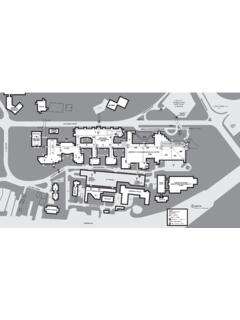Transcription of The health and health system of South Africa: historical ...
1 Vol 374 September 5, 2009 817 health in South Africa 1 The health and health system of South Africa: historical roots of current public health challengesHoosen Coovadia, Rachel Jewkes, Peter Barron, David Sanders, Diane McIntyreThe roots of a dysfunctional health system and the collision of the epidemics of communicable and non-communicable diseases in South Africa can be found in policies from periods of the country s history, from colonial subjugation, apartheid dispossession, to the post-apartheid period. Racial and gender discrimination , the migrant labour system , the destruction of family life, vast income inequalities, and extreme violence have all formed part of South Africa s troubled past, and all have inexorably aff ected health and health services.
2 In 1994, when apartheid ended, the health system faced massive challenges, many of which still persist. Macroeconomic policies, fostering growth rather than redistribution, contributed to the persistence of economic disparities between races despite a large expansion in social grants. The public health system has been transformed into an integrated, comprehensive national service, but failures in leadership and stewardship and weak management have led to inadequate implementation of what are often good policies. Pivotal facets of primary health care are not in place and there is a substantial human resources crisis facing the health sector.
3 The HIV epidemic has contributed to and accelerated these challenges. All of these factors need to be addressed by the new government if health is to be improved and the Millennium Development Goals achieved in South Africa s history is permeated with discrimination based on race and gender. The country s infrastructure was moulded by the violent subjugation of indigenous people, appropriation of their land and resources, and the use of unjust laws, to force black people to work for low wages to generate wealth for the white minority. South Africa is also a country of political resistance; after 82 years, the organised multiracial struggle against unjust rule fi nally won democracy in 1994, along with a con-stitution that establishes the foundation for democratic institutions and upholds wide-ranging human rights .
4 The history of South Africa has had a pronounced eff ect on the health of its people and the health policy and services of the present day. Before 1994, political, economic, and land restriction policies structured society according to race, gender, and age-based hierarchies, which greatly infl uenced the organisation of social life, access to basic resources for health , and health services. Modern South Africa is a multiracial democracy, where the black African majority (79 2% of the population), sits alongside minority groups that are white (9 2%), coloured (9 0%), and Indian (2 6%; the terms used for the diff erent races are consistent with those in common use and employed by the national census, and do not imply acceptance of racial attributes of any kind).
5 1 After 15 years, South Africa is still grappling with the legacy of apartheid and the challenges of transforming institutions and promoting equity in Africa has four concurrent epidemics, a health profi le found only in the Southern African Development Community Poverty-related illnesses (table), such as infectious diseases, maternal death, and malnutrition, remain widespread, and there is a growing burden of non-communicable HIV/AIDS accounts for 31% of the total disability-adjusted life years of the South African population, with violence and injuries constituting a further cause of premature deaths and disability.
6 Although South Africa is considered a middle-income country in terms of its economy, it has health outcomes that are worse than those in many lower income countries. South Africa is one of only Lancet 2009; 374: 817 34 Published OnlineAugust 25, 2009 (09)60951-XSee Editorial page 757 See Comment pages 759 and 760 See Perspectives page 777 This is fi rst in a Series of six papers on health in South AfricaNelson Mandela School of Medicine, University of KwaZulu-Natal, Durban, South Africa (Prof H Coovadia MD); HIV Management, Reproductive health and HIV Research Unit (Prof H Coovadia), Gender and health Research Unit, Medical Research Council (Prof R Jewkes MD), and School of Public health (Prof R Jewkes, P Barron FFCH[SA]), University of the Witwatersrand, Johannesburg, South Africa.
7 School of Public health , University of the Western Cape, Bellville, Cape Town, South Africa (Prof D Sanders MRCP); and health Economics Unit, School of Public health and Family Medicine, University of Cape Town, Cape Town, South Africa (Prof D McIntyre PhD)Correspondence to:Prof H Coovadia, Reproductive health and HIV Research Unit, University of the Witwatersrand, 3rd Floor, Westridge Medical Centre, 95 Jan Smuts Highway, Mayville, 4091 Durban, South messages Freely elected governments are the minimum condition for eff ective health policies. The health and social consequences of despotic, unelected, or poorly functioning elected governments can be longlasting.
8 The will of the people, expressed through resistance to oppression or mobilisation against failed policies in democracies, is the best investment for a healthy future. Programmes that directly address social determinants of health and development, such as discrimination and stigma , subordination of women, poverty and inequality, violence and traditional practices, are essential for promoting health and reducing disease. Macroeconomic policies that promote growth alone are insuffi cient; an economic architecture should allow the development of programmes that reduce poverty, unemployment, and inequities. Good leadership, stewardship, and management of health and related services are crucial to achieving health for all people.
9 Innovative approaches to health service delivery are needed in developing countries that are aff ected by both communicable and non-communicable Vol 374 September 5, 200912 countries where child mortality has increased, rather than declined, since the Millennium Development Goals baseline was set in With 69 deaths under the age of 5 years per 100 000 live births, the country s mortality rate is far in excess of that, for example, of Peru (25 deaths per 100 000 live births), Egypt (35), Morocco (37), and Nepal (59).3 This report examines the historical roots of the determinants of health in South Africa and the development of the health system through colonialism and apartheid to the current post-apartheid period.
10 We present historical dimensions of current problems of gender inequity and violence, and those related to sexuality and the family, as well as the macroeconomic and socioeconomic contexts of health . We also discuss some of the failures in health system governance of the post-apartheid period that have delayed progress in addressing this historical inheritance (fi gure 1 and fi gure 2). These failings are key to the health problems currently facing the country and thus set the scene for the debates presented in the fi ve subsequent reports in this Series, which focus on maternal and child health ,20 HIV/AIDS and tuberculosis,21 non-communicable diseases,22 violence and injury,23 and fi nally the way forward to improve health in the Social, political, and economic contexts of healthModern history of South AfricaThe white population of South Africa traces its roots back to 1652 when the fi rst permanent European settlement was established in the Cape of Good Hope.









